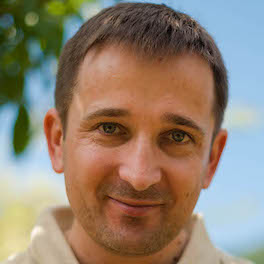Dr. Peter Kozmus
Professional leader, Breeding Programme for the Carniolan honeybee in Slovenia 2021 and Vice-president, APIMONDIA
Peter Kozmus has been a beekeeper since 1994. In 2003, he was Secretary-General of the Apimondia 2003 Congress, which was held in Slovenia. From then on, he attended all the Apimondia congresses and actively participated in them, with the exception of the Congress in Australia in 2007. He is involved in many projects in the field of beekeeping in Slovenia.
Since 2011, he has been the professional head of the breeding programme for the Carniolan honey bee. He supervised the breeding of queens in Slovenia. He is head of the working group for the review and approval of breeding queen bees. In addition, he was the head of the working group for the preparation of the National programme to improve the production and marketing of honey for the years 2017-2019. Moreover, he is the second mandate the President of the Council for Beekeeping at the Ministry of Agriculture, Forestry and Food.
His work was presented in Austria, Croatia, Serbia, France, Germany, India, Ireland, Argentina, Ukraine, Romania, Schotland, Saudi Arabia, South Korea, and many other countries. In addition to the organisation of the Apimondia 2003 congress in Slovenia, he participated in the organisation of the Apimedica 2010 Symposium, 11th Coloss Conference 2015 and International Conference of Beekeeping Organisations in 2010 and 2012.
He is the author or co-author of 8 published original scientific papers, 49 scientific articles and 37 articles from conferences and symposiums. In addition, he is co-author of the books Beekeeping for everyone, bumblebees in Slovenia and No Bees, No Life.
In recent years he has been the coordinator of the initiative to declare 20th May World Bee Day. The initiative was presented to the General Assembly of Apimondia in South Korea, 2015, which was unanimously adopted. The UN adopted proposal in 20th December 2017.
Beekeeper expert
As an acknowledged expert, he was invited as a consultant to many countries where he learned different ways of beekeeping and other types of bees. He has come to know many of the beekeeping technologies that depend on the available materials in the surroundings, the climate, and the availability of pasture. For this reason, it is distinguished by its wide beekeeping knowledge, which, on numerous occasions, is also expanding.
In 2015, Peter Kozmus, as a beekeeper, visited Bangladesh where he became acquainted with the technology of beekeeping there. He presented to Brac organisation and beekeepers beekeeping in Slovenia and the technology of beekeeping and breeding of queens. During his visit to the beekeepers, he suggested some improvements to their technology, and subsequently participated in the preparation of an international beekeeping project for cooperation between Slovenia and Bangladesh.
Researcher
The research path is Dr. Peter Kozmus began at the National Institute of Biology. He continued his career at the Agricultural Institute of Slovenia, and partly this role is also performed in the last period of his employment at the Beekeeping Association of Slovenia. At the beginning, research was the most important in determining the diversity of bumblebees in Slovenia and in determining the differences within the population of honeybee in Slovenia. For 3 years, he identified the different effects of the agricultural environment on bee colonies.
Cooperation with APIMONDIA International Beekeeping Organisation
Dr. Peter Kozmus has been active in the APIMONDIA International Beekeeping Organisation since 2002, when he was the Secretary General of the APIMONDIA Congress in Ljubljana. From then on, he attended all APIMONDIA congresses, except for the APIMONDIA 2007 congress in Australia.
In 2017, he was at the 45th APIMONDIA Congress in Istanbul, Turkey, elected for vice president of this organisation. After 20th October 2018 he was acting President of APIMONDIA since September 2019. In August 2022 he was re-elected for Apimondia vice president. Here, his main task is the transfer of knowledge between scientists and beekeepers. Additionally, he works to involve young people in beekeeping and improve the conditions for the survival of bees.
19 diciembre 2022
